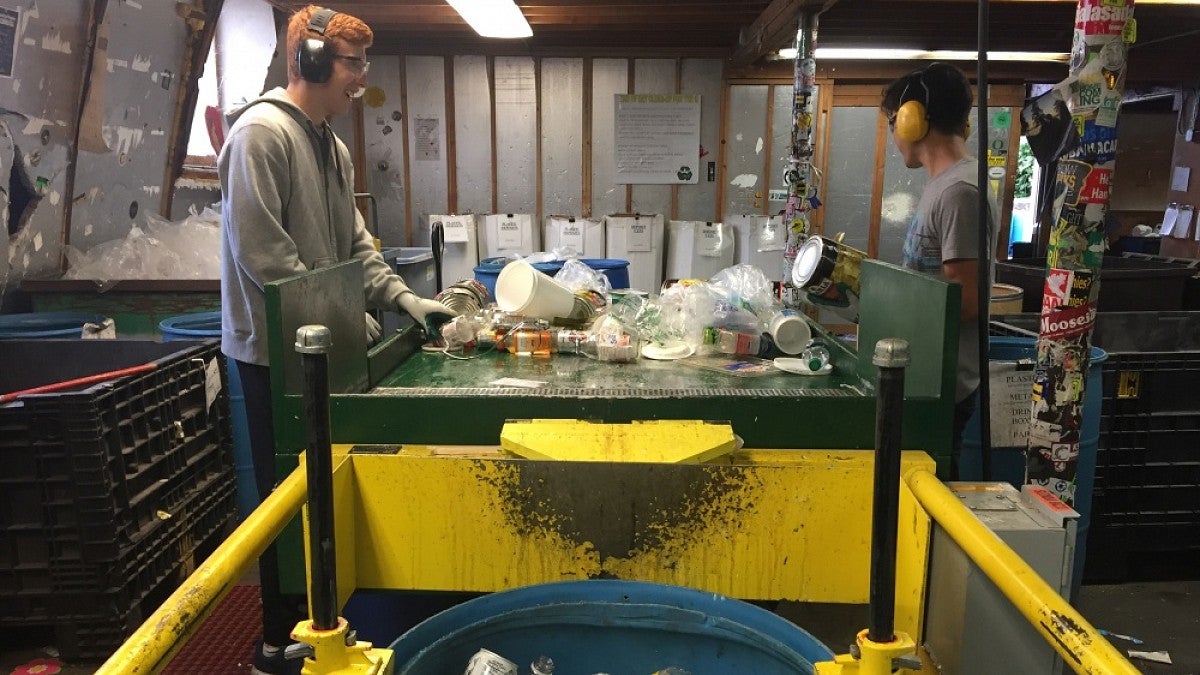As China moves to restrict garbage-contaminated recyclables from coming to its shores, agencies throughout the United States are scrambling to address what that means for recycling programs and growing landfills.
For the University of Oregon — with sustainability at its core — a lack of recycling could be devastating. The UO Zero Waste Program, however, already sorts and processes campus recyclables and compostables, creating clean and marketable materials.
“The UO Zero Waste Program is an intermediate processor, as we actually sort out contaminants before marketing UO recyclables,” said Karyn Kaplan, UO Zero Waste Program manager. “But the collection contains garbage that contaminates the materials and requires significant labor hours to removing them.”
The Chinese government doesn’t want other countries’ garbage. To keep everything out of the landfill, people must be diligent in how they recycle.
“Some of the main contaminants are cups, clamshells, plastic utensils and wrappers,” Kaplan said. “Less than 2 percent of all plastics produced are recyclable. The actual recycling logo does not always imply you can recycle it; the labelling has created confusion and assumptions.”
Only certain types of items may be collected by local recycling agencies. Something may be marked with a recycle or compostable logo, but if it can’t be recycled locally it is considered a contaminant. Kaplan said the best bet is to follow the recycling collection instructions and signs and to make sure the item is clean and free of liquid.
“People want to do the right thing and they value recycling. The best approach, however, is ‘when in doubt, throw it out,’” she said. “Oregon was the first state to implement recycling legislation and to create the first bottle bill. Oregon will continue its leadership in protecting our resources, but it’s important to use the zero-waste system as intended and not create another waste stream.”
The UO Zero Waste Program, which recovered 56 percent of the waste stream in 2016-17, is currently evaluating sorting signage and will soon update recycling categories to help further reduce contamination.
“Remember, all cups are trash, reduce your waste when possible and bring your own beverage refill container,” she said. “Take a minute to follow sorting guidelines, which will help tremendously.”
For more information about what can be recycled and composted on campus, visit the UO Zero Waste website.
—By Heidi Hiaasen, University Communications


